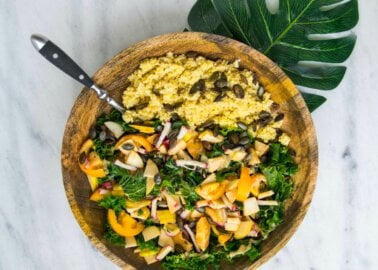Animals Suffer on British Farms Despite ‘High-Welfare’ Assurances
“High-welfare” farms are a complete myth. It’s just another label – like “free-range” or “organic” – to deceive consumers into thinking animals are farmed using humane methods before they’re slaughtered and their flesh is sold in supermarkets. Disturbing footage of British farms, including those audited under the “Red Tractor” label, exposes the sickening reality of cruelty to pigs, cows, chickens, and other animals. These intelligent beings are locked inside dark, dirty pens and suffer from illness and injuries resulting from abuse and mistreatment. These shocking conditions are a far cry from the “ethical” choice consumers believe they’re making.
When British farms receive the “Red Tractor” label, consumers are told that they are given a “cast-iron guarantee” that animals are farmed under “high-welfare” standards, assured by the government. The truth is that the label is a convenient way to conceal the same exploitation and bloodshed we see on non-assured farms. It’s used to make consumers feel better about buying and eating the flesh of innocent animals. In no way do the sentient beings on assured farms live a decent life before being slaughtered – like we’re made to believe.
Pigs are sensitive and intelligent animals who require physical and mental stimulation to meet their needs. Their natural behaviours include foraging for food, socialising and forming strong bonds with each other, and relaxing. But investigations have revealed that on some farms in the UK, both living and dead pigs were lying in their own excrement, and there was no mental stimulation in sight. Before they give birth, mother pigs are confined to farrowing crates so small that they can’t even turn around. The pigs on these farms are frightened. In the video above, one farmer is seen banging a piglet’s head against the wall before using pliers to break off the ends of the animal’s teeth – without administering any painkillers. This is all too common in the industry to prevent cannibalism and tail-biting caused by extreme stress.
On “organic” dairy farms, calves are barbarically force-fed as their mothers look on helplessly. After being separated from their babies, cows are put in shackles to keep them standing despite pelvic damage and other injuries caused by repeated births. At some point during their short lives filled with cruelty, most will suffer from painful lameness. Consumers are misled into thinking that farming cows “organically” more closely resembles the natural order of things, where calves’ mothers would begin to suckle them and they would bond. However, on all dairy farms, including organic ones, calves are torn away from their mothers shortly after birth so that the milk intended for them can instead be consumed by humans.
Virtually every animal raised for meat ends up in a terrifying abattoir filled with the stench of death, where they will be shackled, electrocuted, or gassed and their throats will be sliced open. Sometimes, they’re plunged into a tank of scalding-hot water while still conscious and able to feel pain. Certifications and assurances don’t stop the inhumane conditions that these intelligent, social animals are made to endure.
This isn’t the first time that supposedly “high-welfare” farms have been exposed as being anything but. There’s no such thing as rearing animals “ethically” on a British farm. Instead, their lives are a living nightmare when they’re treated like products. The labels that we see stuck on dead animals’ flesh in supermarkets never actually prevent them from suffering in the meat industry.
What You Can Do
The best way to help animals abused on farms is to stop paying for this cruelty. We don’t need to eat the flesh or eggs of any animal or drink their milk.
If you care about animals and don’t want to be deceived by farming assurance schemes any longer, why not take the vegan pledge? Our free vegan starter kit is full of tips and recipes to help you make the switch.




